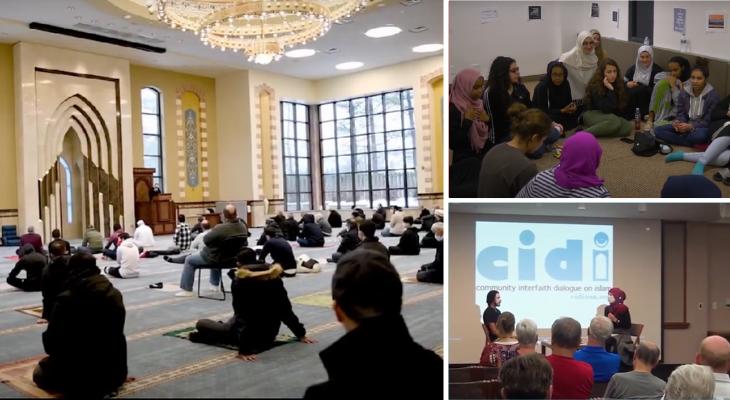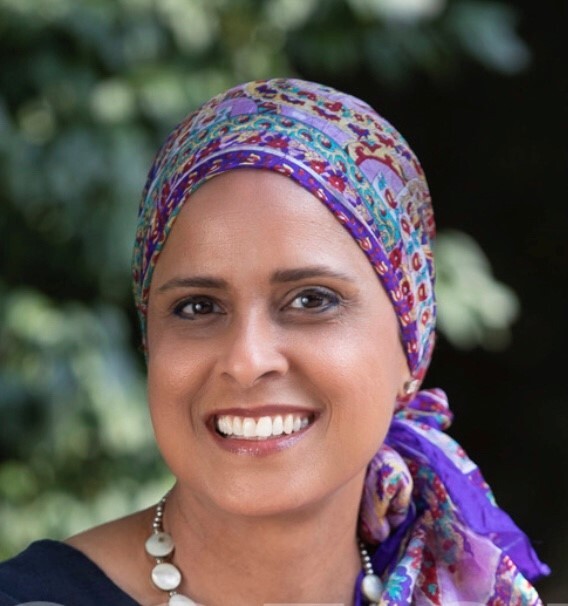Muslim Nonprofits are Growing, and a New Effort Will Help Them Thrive
April 26, 2022

This April, Muslims around the world will be observing the holiday of Ramadan — a month-long period of fasting from dawn to sundown, and of thinking of others, and of giving back. Philanthropy is deeply rooted in the Muslim faith, as well as my own.
Raised to give back
My working-class family’s support was not extravagant, but we did what we could. This experience taught my sister and me that, even as kids, we had the power to make a transformational difference in others’ lives.
Share
Related Articles
American Civic Life
We Commemorate, We Commit: Out of Catastrophe, a Conversation on Connection and Repair
American Civic Life
Eboo Patel and Wajahat Ali: Is “Interfaith America” Even Possible?
American Civic Life

Dilnaz Alim Waraich. Photo courtesy
The immigrant story is strong in my family. My husband and I are children of South Asian Muslim immigrant parents – his parents, from Pakistan, and mine, from India. Their experiences were similar to those of many who left their homelands in the hopes of giving their children a better life. It involved countless sacrifices, the occasional humiliation, and continuous pressure to assimilate. They had the vision to seek out a world where there was an abundance of opportunity.
For children of immigrants, watching our parents persevere was a lesson in how to become fierce optimists and to pursue our lives with passion.
When I was a child, the month before Ramadan, my immigrant parents would sit at the kitchen table with my sister and me to discuss how our family could give back. They would tell us about a family relative back in India who could use our help. Maybe it was for something critical, like surgery; or something invaluable, like education; or something practical, like a sewing machine!
My husband and I are fortunate to continue the tradition of sitting at the kitchen table with our two sons to discuss our family values and the organizations we want to support in our community. We want them to have that same fierce optimism and involvement in our family’s Zakat — the philanthropic responsibility that Muslims have practiced for 1,400 years.
During one of those conversations a few years ago, we realized we weren’t prioritizing Muslim American-led nonprofits in our philanthropic giving — so we decided to change that.
Supporting Muslim-American nonprofits
This spirit of optimism resulted in my family’s decision to prioritize supporting Muslim-American nonprofits doing impactful work. We started by having conversations with Muslim leaders to understand what they needed. We learned that, although they were very mission-driven, they felt too under-resourced to partner with their non-Muslim peers.
Wanting to understand the challenges those organizations faced, I reached out to our grantees. From our discussions, I could see the resilience and humility these organizations possessed. Without connection to the broader philanthropic community and funding support, these organizations were caught in a mindset of scarcity.
My family was curious if these Muslim-led nonprofits could be supported in a way that could help them move away from a scarcity mindset to a mindset of abundance. The outcome of that family discussion was the funding of a three-year study project called the Community Collaboration Initiative that has been focused on building trust and a collaborative culture among a select group of Muslim led organizations.
Building the Community Collaboration Initiative
In our first year, 2020, we focused on building greater trust among the participants.
We’re wrapping up Year 2, A Year of Learning, in which we developed a heightened sense of collaboration through shared programming. This has been very exciting and has built a lot of momentum from a lot of different spaces! This project shows the power of strategic philanthropists. Here’s the YouTube version of the video.
For the past two years, these organizations have worked closely with the Community Collaboration Initiative to deepen their collaborative skills. In 2022, the third and final year, these organizations have formed five teams working towards common goals and we’re focusing on collaboration through sustainability.
How you can help: an invitation
We are inviting our community to join us in establishing the Muslim Collaboration Prizes to fund five collaborative initiatives undertaken by our nonprofit participants to help them gain efficiencies, reduce redundancies, thereby helping them increase the collective impact of their work. These prizes are the culmination of an ongoing focused effort to help our Muslim nonprofits seek a bigger and better future for themselves and those that they serve.
To incentivize the organizations for participating in this time-intensive process, the initiative launched the $1.5 million Muslim Collaboration Prizes at the Indiana University Lilly Family School of Philanthropy, to foster a more collaborative mindset.
The Prizes include an “equitable twist” in guaranteeing a minimum award of $50,000 for any team that goes through the application process. In addition, rather than competing against each other, teams could receive up to $200,000 based on the evaluation of their applications against a set of criteria that assesses the quality and depth of the collaboration, and the long-term impact of proposed projects. These prizes are the culmination of an ongoing effort to help our Muslim nonprofits move into a mindset of abundance and help them increase the collective impact of their work.
If you are interested in supporting or learning more about the Muslim Collaboration Prizes, please contact Dilnaz Waraich at [email protected].



